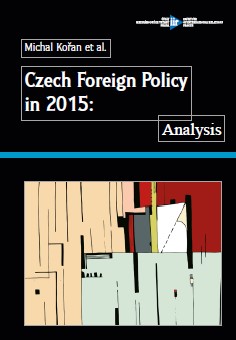The European dimension of Czech foreign policy
The European dimension of Czech foreign policy
Author(s): Vít Beneš
Subject(s): Political history, Government/Political systems, International relations/trade, Political behavior, Politics and society, Present Times (2010 - today), EU-Accession / EU-DEvelopment
Published by: Ústav mezinárodních vztahů
Keywords: Czech Republic; foreign policy; European Union; Government Shift; Public opinion; EU membership;
Summary/Abstract: In 2015, the Government coalition of Česká strana sociálně-demokratická (ČSDD), Křesťanská a demokratická unie – Československá strana lidová (KDU-ČSL) and the movement ANO 2011 continued to work. The mere fact that this coalition continued to work for a third year without any significant inter-coalition conflicts in the European policy, as was the case with the previous governments, is worthy of attention. The op-position to the Government’s European policy was relatively weak in 2015. The coalition government declared a “pro-European” course of its foreign policy, so the pro-European opposition (TOP 09) had only a small space for criticising the Government for the pro-European positions. On the opposite side of the spectrum, the traditional Eurosceptic opposition (ODS) was considerably weakened after the last parliamentary elections. In regard to specific issues, such as the reaction to the refugee crisis and the scandal of “the refugee quotas”, the Government had a critical attitude towards the EU, thereby reducing the space for criticism from the traditional eurosceptic political parties. The new populist movement Úsvit of Tomio Okamura is undergoing an internal crisis and is falling apart. The parliamentary opposition had some problems in formulating credible alternative European policies. There is an evident tension between President, Miloš Zeman, and Prime Minister, Bohuslav Sobotka, that is manifested on the level of personal as well as political priorities, but the President’s attitudes in the European policy did not pose a major threat and challenge to the Czech European policy. The President had a much stronger opinion on the Union proposal on the solution of the refugee crisis than the Government. He shaped the public debate on this topic and tried to direct the Government’s policy, but it was not a threat to the European policy of the Government as such.
Book: Czech Foreign Policy in 2015: Analysis
- Page Range: 47-73
- Page Count: 27
- Publication Year: 2017
- Language: English
- Content File-PDF

